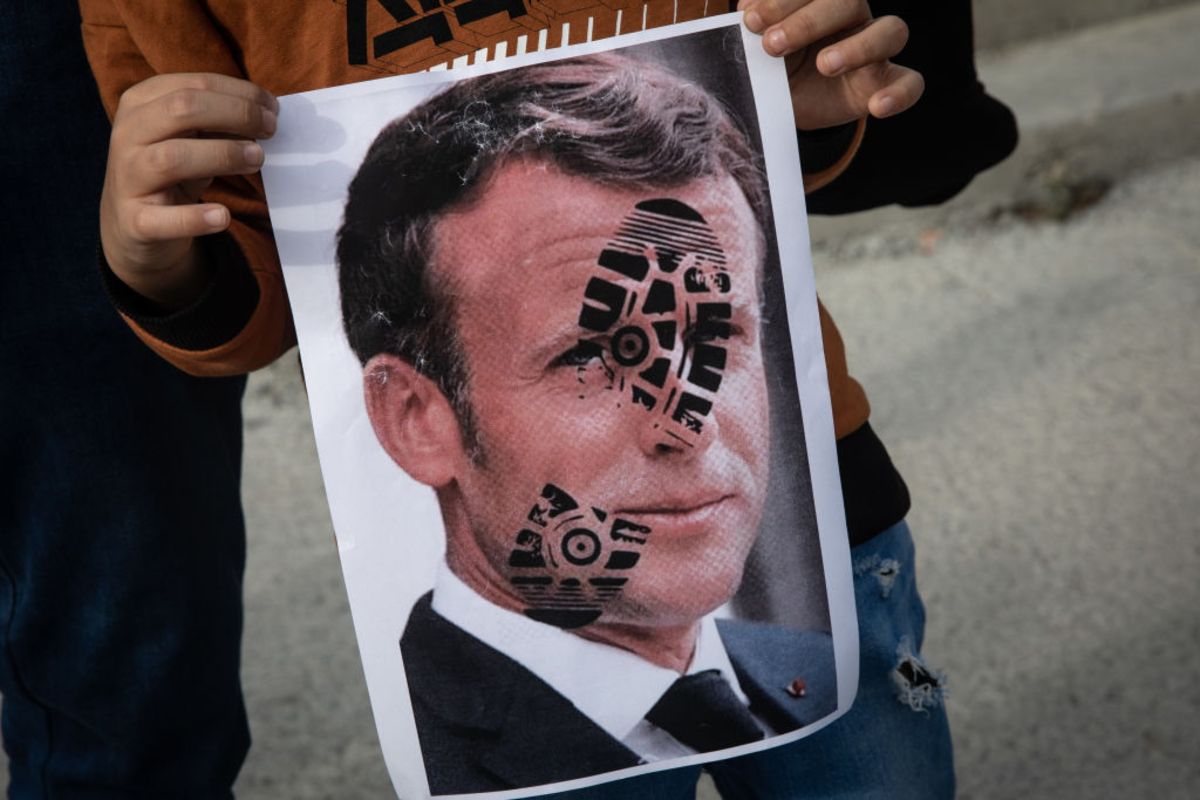The last thing the world needs amid a resurgent pandemic is a clash of civilizations. Yet this is what French President Emmanuel Macron seems intent on fomenting. And, in many Muslim leaders, he has found willing and eager partners for his venture.
From all accounts, the Chechnya-born teenager who gruesomely murdered a schoolteacher in France this month represents yet another case of online radicalization — the same force that has fueled flash lynch mobs in India and right-wing militias in the United States.
But Macron chose to respond to the atrocity with an unprecedented crackdown on France’s Muslim community, accompanied by a vociferous critique of its religion — thereby “communalizing,” to use an Indian phrase, what is a widespread social pathology.
Having asserted that Islam is “in crisis all over the world today,” Macron has now gone further by proclaiming France’s staunch support for the caricatures of the Prophet Mohammed that originally enraged the young murderer.
To put it soberingly: Macron has staked France’s global reputation on crude mockery of a figure revered by more than a billion Muslims.
Self-appointed paladins of Islam, who have lately been floundering, eagerly accepted the lifeline thrown to them by Macron. Pakistani Prime Minister Imran Khan and Turkish President Recep Tayyip Erdogan, both beset by multiple crises, have ostentatiously attacked the French president.
Erdogan even questioned Macron’s mental health, provoking France to recall its ambassador to Turkey. The boycott of French goods demanded by Erdogan is already being administered in Kuwait and Qatar. Mass protests against Macron are emerging in a broad swathe of Muslim countries from Libya to Bangladesh.
In recent days, Islamophobia has surged at all levels of French society, from the interior minister, whoaccused halal food in supermarkets of fostering separatism, to the assailants who stabbed two Muslim women in headscarves near the Eiffel Tower.
Macron’s own strategy seems clear: to out-maneuver his far-right rival Marine Le Pen. His poor handling of the pandemic had already diminished his chances in the 2022 presidential election. Macron now hopes to bluster his way out of an existential crisis with appeals to France’s matchless grandeur.
He has a tradition of rousing rhetoric in this regard. Take, for instance, this declaration from Macron’s book “Révolution” in 2016: “In the spirit of France there is an aspiration to the universal that is at once an unceasing indignation at injustice and oppression, and a determination to tell others what we think of the world, here, now and on behalf of everyone.”
Macron doesn’t seem to have considered a basic problem: Most people in the world today do not much care what the French think of them. Assertions such as the 2007 claim by his predecessor Nicolas Sarkozy that “the African has not fully entered history,” or Macron’s own remarks in 2017 that Africa had an intransigent “civilizational” problem, stemming from African women who breed “7 to 8 children,” have not given those people much reason to reconsider their disdain.
Taking up the white man’s burden abroad, Macron seems oblivious to a deepening problem at home: The old French model, which claimed to be universal and superior to all social systems, is disastrously unsuited to an increasingly multi-ethnic and multi-racial society.



